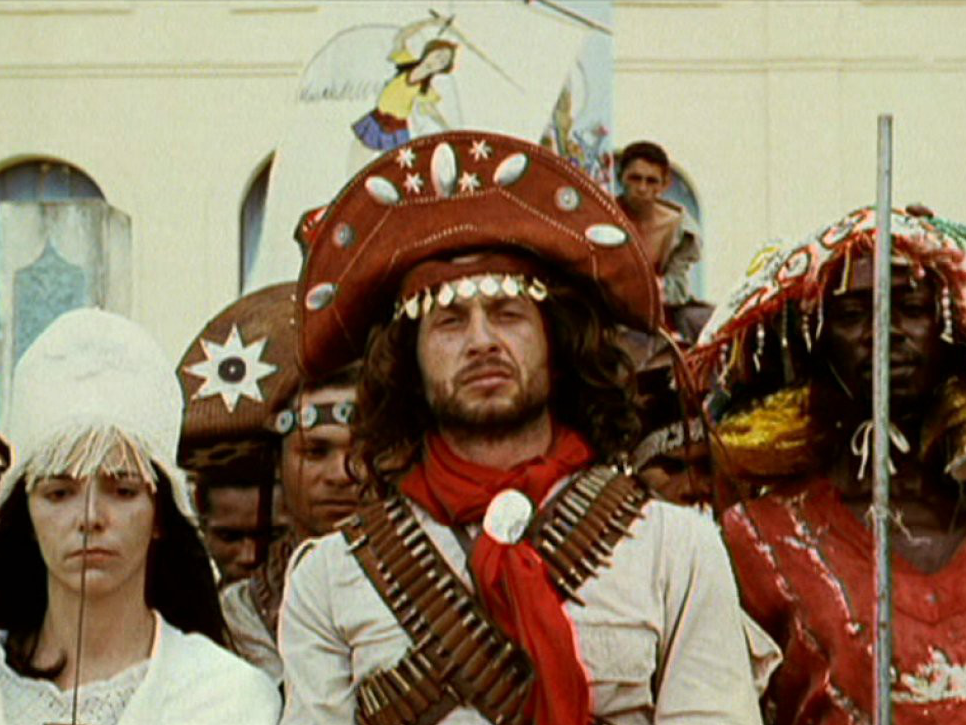
“Be aware: for him there are no true or false gods, there are (as Deleuze and Guattari would say) ‘rhizome’ gods, there are images sliding ones beneath the others, all of them true or all of them false. What matters is not the Earth but the Age. If the word culture has any meaning nowadays, where but in Brazil? A filmmaker plugged into the flux of images, the languages of the whole world, who but Glauber?”
Serge Daney1
Rocha: [...] The public is colonised by a type of language imposed by Hollywood, which unfortunately is the same as that imposed by the Russian regime. The public isn’t given the chance to choose because the distribution structure today in capitalist and socialist countries imposes the same type of product. And the critics go along with this judgement when they say that films are incomprehensible.
Straub: The critics who stick to that sort of language are nothing but whores working in with pimps, that’s all...
Rocha: Yes, because at that point there is a collaboration between critics and leftist paternal intellectuals who claim they don’t understand: they outlaw these filmmakers. But basically, I feel that the filmmakers who work outside the industry are much more democratic, much more revolutionary, since they respect the public more. I myself try to make difficult films – I don’t think I’m being paternal towards the public. I think peasants, workers, students, even the nobility – anyone you can think of – can understand a film ...2
“The art in Brazil (or any other country in the Third World) makes sense, yes sir! The underdeveloped country that does not have a strong or madly national art is to be pitied, because, without its art, it’s all the weaker (its brain can be colonized), and it’s here that the most dangerous extension of economic colonization can be found. In the specific case of cinema, I want to let my colleagues know that they should endure the criticism, the slander and the contempt without wavering, because I am absolutely convinced that Brazilian Cinema Novo is currently producing images and sounds that are what we can call modern cinema.”
Glauber Rocha3
- 1Serge Daney, “The Death of Glauber Rocha”, Diagonal Thoughts.
- 2Simon Hartog, “There’s Nothing More International Than a Pack of Pimps”, Rouge.
- 3Glauber Rocha, “Godard’s latest scandal”, Diagonal Thoughts.

